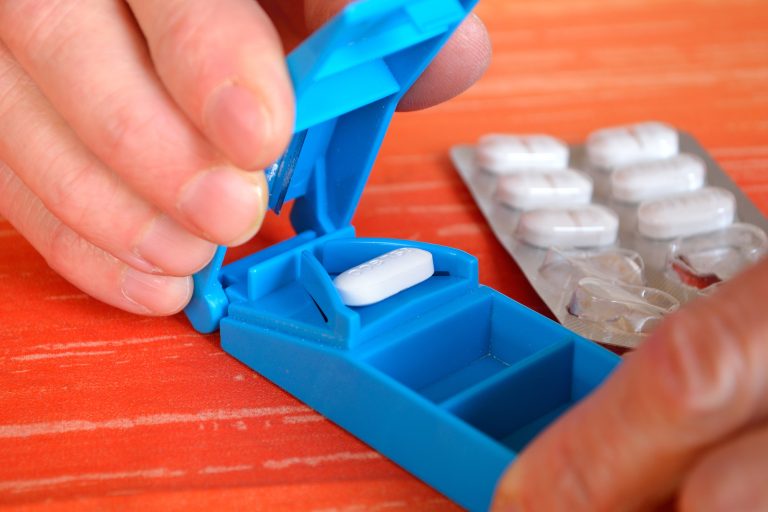The Role of Modafinil in Mixed Martial Arts (MMA): Benefits and Controversies
Modafinil is a prescription medication classified as a wakefulness-promoting agent. In the United States, it is approved to treat narcolepsy, obstructive sleep apnea, and shift work disorder (U.S. Food and Drug Administration [FDA], 2015). Beyond these uses, modafinil has attracted attention for its ability to enhance alertness, concentration, and endurance.
In the high-intensity world of Mixed Martial Arts (MMA), some fighters have experimented with modafinil as a potential performance aid. However, its use in professional sports raises concerns about safety, fairness, and regulatory compliance.
Modafinil: Medical and Pharmacological Overview
Modafinil is a non-amphetamine stimulant that promotes wakefulness. Its mechanism is not fully understood, but it is believed to weakly inhibit dopamine reuptake while also influencing norepinephrine, serotonin, orexin, and histamine systems in the brain (Greenblatt & Adams, 2023). Unlike traditional stimulants, it produces less euphoria, which may explain its lower, though not absent, abuse potential.
Approved uses include narcolepsy, obstructive sleep apnea, and shift work disorder (FDA, 2015). Off-label, it has been studied for ADHD, depression, cancer-related fatigue, multiple sclerosis fatigue, and cognitive enhancement in healthy individuals (Greenblatt & Adams, 2023).
Benefits of Modafinil in MMA
Enhanced Alertness and Cognitive Function
Modafinil can improve vigilance, attention, and decision-making, especially under sleep deprivation or stress (Greenblatt & Adams, 2023). These attributes are valuable in MMA, where rapid reactions and focus are critical.
Fatigue Mitigation and Endurance
A controlled study found that modafinil significantly prolonged exercise time at 85% VO₂max compared to placebo, while also lowering perceived exertion levels (Jacobs & Bell, 2004). For fighters, this suggests potential benefits in sustaining performance during training or competition.
Psychological Effects
Some research points to mood-stabilizing properties, though evidence is mixed. Its most consistent effects are in cognitive enhancement and fatigue reduction rather than emotional regulation (Greenblatt & Adams, 2023).
Risks and Controversies
Health Risks
Most common side effects include headache, insomnia, nausea, anxiety, and dizziness (FDA, 2015; Greenblatt & Adams, 2023). Rare but serious reactions include Stevens-Johnson Syndrome, toxic epidermal necrolysis, and multiorgan hypersensitivity (FDA, 2015).
Cardiovascular concerns are also noted. While short-term studies showed minimal blood pressure changes, some patients required increased antihypertensive medication. Modafinil should be used cautiously in individuals with a history of heart disease (FDA, 2015).
Psychiatric effects such as mania, hallucinations, aggression, and suicidal ideation have been reported, particularly at higher doses or in vulnerable individuals (FDA, 2015).
Abuse and Dependency Potential
Although modafinil has a lower risk of addiction than amphetamines, it is a Schedule IV controlled substance due to its psychoactive properties and potential for misuse (FDA, 2015). Laboratory studies suggest it produces less euphoria than cocaine or amphetamines, but cases of dependency have been reported (Greenblatt & Adams, 2023).
Ethical and Regulatory Issues
Modafinil is banned in-competition by the World Anti-Doping Agency (WADA) and enforced by organizations such as USADA. Ethical concerns center on fairness: should athletes with legitimate medical needs be allowed therapeutic exemptions, or does any use compromise integrity? Kaufman (2005) highlighted the tension between therapeutic necessity and performance enhancement, while Reardon and Factor (2016) argued that stimulants should not be used at elite levels due to fairness and safety concerns.
Case Studies and Incidents
Kelli White (Track and Field, 2003)
American sprinter Kelli White tested positive for modafinil at the World Championships, claiming medical use for narcolepsy. Her case triggered widespread debate over whether therapeutic use exemptions could be exploited for performance gain (Kaufman, 2005).
MMA Incidents
- Rob Emerson (2014): Tested positive for modafinil in a Bellator event, leading to disciplinary action by the California State Athletic Commission. Other fighters at the same event tested positive for unrelated substances.
- Ryan Benoit (2021): Suspended for 10 months by USADA after testing positive for modafinil. He claimed use outside of competition, but the ban underscored that the drug remains prohibited during competition periods.
Modafinil in Military and High-Stress Settings
Beyond sports, modafinil has been used in military research as a fatigue countermeasure. Studies show it maintains alertness and performance during extended operations, sometimes outperforming caffeine and comparable to amphetamines but with fewer side effects (Jacobs & Bell, 2004; Greenblatt & Adams, 2023). These findings highlight its utility in demanding environments, though long-term safety remains under investigation.
Conclusion
Modafinil offers potential benefits for MMA fighters, including enhanced alertness, prolonged endurance, and reduced fatigue. Research supports its role as an ergogenic aid, but health risks and regulatory bans make its use in combat sports highly controversial.
Cases such as Kelli White, Rob Emerson, and Ryan Benoit highlight the tension between medical use, performance enhancement, and fair competition. While modafinil may help some athletes push beyond fatigue, it also raises ethical, legal, and safety concerns that regulators and fighters cannot ignore.
References
- Greenblatt, K., & Adams, N. (2023, February 6). Modafinil. In StatPearls [Internet]. StatPearls Publishing. https://www.ncbi.nlm.nih.gov/books/NBK531476/
- Jacobs, I., & Bell, D. G. (2004). Effects of acute modafinil ingestion on exercise time to exhaustion. Medicine & Science in Sports & Exercise, 36(6), 1078–1082. https://doi.org/10.1249/01.mss.0000128146.12004.4f
- Kaufman, K. R. (2005). Modafinil in sports: Ethical considerations. British Journal of Sports Medicine, 39(4), 241–244. https://doi.org/10.1136/bjsm.2004.016303
- Reardon, C. L., & Factor, R. M. (2016). Considerations in the use of stimulants in sport. Sports Medicine, 46(5), 611–617. https://doi.org/10.1007/s40279-015-0456-y
- U.S. Food and Drug Administration. (2015). PROVIGIL® (modafinil) tablets, for oral use, C-IV [Prescribing information]. U.S. Department of Health and Human Services. https://www.accessdata.fda.gov/drugsatfda_docs/label/2015/020717s037s038lbl.pdf








